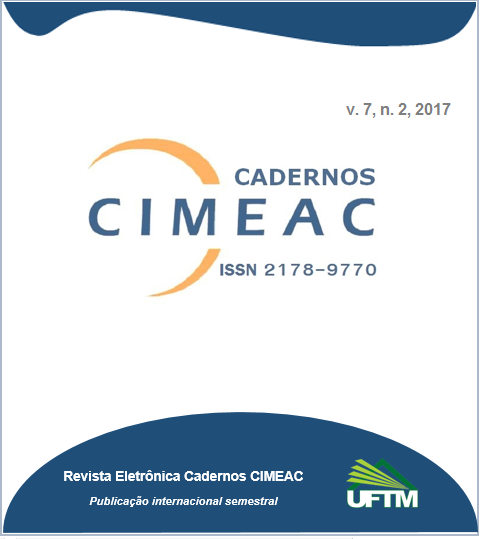Authoritarian populism contra "Bildung": anti-intellectualism and the neoliberal assault on the Liberal Arts / Populismo autoritário contra "Bildung": o anti-intelectualismo e o assalto neoliberal contra as artes liberais
DOI:
https://doi.org/10.18554/cimeac.v7i2.2429Resumo
A synergistic movement is taking place in American society combining authoritarian populism, the neoliberal transformation of the university, and anti-intellectualism. In the first part of this paper, I pin my notion of intellectualism (and hence anti-intellectualism) to a specific frame of reference, namely the German notion of "Bildung" as it is discussed in writings of Nietzsche and Adorno, which I associate loosely with the traditional American liberal arts model of higher education. In the second part of the paper, I outline the neoliberal assault on the liberal arts, rooting my analysis in Wendy Brown’s work, which is influenced by Foucault. In the third part of the paper, I describe the relationship of this anti-intellectualism to the rise of populism and the threat of authoritarianism in the United States. In the final section I tie the discussion into the general analysis of Horkheimer and Adorno’s analysis of fascist tendencies in liberal-democracies, emphasizing the continued relevance of their ideas to contemporary developments in education and beyond.
Keywords: Liberal arts; Neoliberalism; Intellectuals; Populism; Authoritarianism.
RESUMO: Um movimento sinérgico está ocorrendo na sociedade norte-americana combinando populismo autoritário, transformação neoliberal da universidade e anti-intelectualismo. Na primeira parte deste artigo, proponho minha noção de intelectualismo (e, portanto, de anti-intelectualismo) a partir de um quadro específico de referência, especialmente a noçã alemã de "Bildung" (tal como discutida nos escritos de Nietzsche e Adorno) que eu associo livremente com o tradicional modelo de artes liberais norte-americano de ensino superior. Na segunda parte deste texto, destaco o assalto neoliberal sobre as artes liberais, fundamentando minha análise no trabalho de Wendy Brown, que é influenciada por Foucault. Na terceira parte do texto, descrevo a relação do anti-intelectualismo com a ascensão do populismo e a ameaça do autoritarismo nos Estados Unidos. Na seção final, relaciono a discussão com a análise geral de Horkheimer e Adorno sobre as tendências fasicstas nas demorcacias liberais, enfatizando a contínua relevância de suas ideias para os desenvolvimentos contemporâneos na educação e além.
Palavras-chave: Artes liberais; Neoliberalismo; Intelectuais; Populismo; Autoritarismo.
Downloads
Publicado
Edição
Seção
Licença
Os autores que publicam nesta revista concordam com os seguintes termos:
(a) Não cobramos dos autores para a publicação neste periódico.
(b) Autores mantém os direitos autorais e concedem à revista o direito de primeira publicação, com o trabalho simultaneamente licenciado sob a Licença Creative Commons que permite o compartilhamento do trabalho com reconhecimento da autoria e publicação inicial nesta revista.
(c) Autores têm permissão e são estimulados a difundir e a distribuir a versão publicada de seu trabalho online (ex.: em repositórios institucionais ou na sua página pessoal) após o processo editorial, já que isso pode aumentar o impacto e a citação do trabalho publicado (Veja O Efeito do Acesso Livre).
* * *
AUTHORS COPYRIGHT AND PUBLISHING RIGHTS
Authors who publish with this journal agree to the following terms:
(a) This journal does not charge authors for publication.
(b) Authors retain copyright and grant the journal right of first publication with the work simultaneously licensed under a Creative Commons Attribution License that allows others to share the work with an acknowledgement of the work's authorship and initial publication in this journal.
(c) For authors whose articles have been accepted: authors are permitted and encouraged to post their work online (e.g., in institutional repositories or on their website) after the publication of the text in Cadernos CIMEAC, as it can lead to productive exchanges as well as earlier and greater citation of published work (See The Effect of Open Access).

 10.18554/cimeac
10.18554/cimeac

